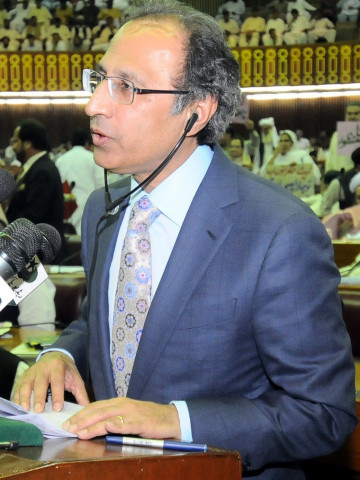
Amid unprecedented uproar, blows, punches and intense scuffles between the treasury and opposition members, the federal government presented a Rs2.96 trillion budget that included surprisingly little by way of populist spending.
The budget proposals appear to be the result of intense, behind-the-scenes negotiations between the finance ministry – led by the pragmatic Finance Minister Abdul Hafeez Shaikh – and the more populist members of the ruling Pakistan Peoples Party. The finance minister reportedly wanted a Rs2.74 trillion budget, which would have been lower even in nominal terms than the 2012 budget. He was asked by his fellow cabinet members to raise that amount by about Rs222 billion to what became the final proposal for the 2013 budget.
About Rs88 billion of that excess amount came in subsidies, which the finance ministry had wanted reduced to Rs121 billion, but was forced to raise it to Rs209 billion by other members of the cabinet.
The proposed 2013 budget is 18.2% higher than the original 2012 budget, but only about 0.6% higher than the amount the federal government actually ended up spending in the fiscal year that will end on June 30, 2012. The budget deficit has been projected at about Rs1.12 trillion, or about 5% of the total size of the economy. In the absence of assistance from Washington on account of strained Pakistan-US ties, the deficit will largely be financed through bank borrowing.
The proposed Rs2.38 trillion tax target would likely improve the tax-to-GDP ratio from present 9.6% to 10.3% – entering double digits for the first time in 14 years. Of the federal government’s revenues, Rs1.45 trillion, or about 61% will be transferred to the provinces, under the agreement set forth in the 7th National Finance Commission Award.
The single largest chunk of the federal budget, over 38.5%, will go to debt servicing, including $2.3 billion in loan repayments on the country’s foreign debt. Defence will get the next highest share, with Rs643 billion, or about 21.7% of the budget, being spent on the military (including its pensioners). The government has also allocated another Rs150 billion in what it called contingent liabilities – an amount of money it sets aside primarily for the military.
About Rs191 billion will be spent on bailouts for state-owned enterprises, including Rs31 billion for Pakistan Railways alone.
After the 18th Amendment to the Constitution, federal spending on public safety, education and health has dwindled to miniscule levels since it is now primarily handled at the provincial level. Nonetheless, the federal government will spend Rs70 billion on public safety, Rs7.8 billion on health and Rs48 billion on education.
The government also proposed several major tax reforms, including the introduction of marginal tax rates for income tax and raising the minimum taxable annual income to Rs400,000, from the current Rs350,000. Capital gains for Pakistan’s non-existent venture capital industry will remain zero till 2024. Investments in mutual funds and equities will now also have more tax benefits as well.
Perhaps surprisingly, the federal government appears to have allocated only Rs60 billion for its flagship poverty alleviation scheme: the Benazir Income Support Programme. The finance ministry had announced Rs70 billion, but the budget documents showed the lower figure. Nonetheless, BISP cardholders will get an additional 10% discount at the state-owned Utility Stores, the nationwide chain of retail supermarkets the government uses to sell subsidised goods. The Utility Stores Corporation will be opening 2,000 new stores in locations where it can serve lower-income Pakistanis.
Riot on the floor
The budget speech itself, meanwhile, was the scene of a small-scale riot as members of the National Assembly members from the ruling PPP created a ‘human wall’ around the finance minister and Prime Minister Yousaf Raza Gilani, trying to ‘protect’ them from MNAs from the opposition Pakistan Muslim League Nawaz (PML-N).
The two sides very quickly descended first into a verbal altercation and then on to fisticuffs, a rare show of physical violence on the floor of the National Assembly that represents a dangerous escalation in the political temperatures ahead of the next elections, scheduled for May 2013.
The opposition, however, appears to have captured at least some of the mood of the country, which has been beset with violent riots in virtually all major and minor metropolitan areas against power outages that last up to 20 hours a day, leaving millions of citizens without any relief from the sweltering heat of the summer.
Sensing that the power crisis will likely make or break the government, the finance minister has tried to move for the removal of all subsidies – an unpopular step that may nonetheless help unclog the build-up of massive inter-corporate circular debt in the energy sector and help increase power production.
The finance ministry also said that the government was willing to spend whatever was necessary to end the circular debt.
Published in The Express Tribune, June 2nd, 2012.
A slideshow of pictures for the budget can be seen here.
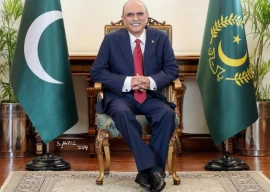


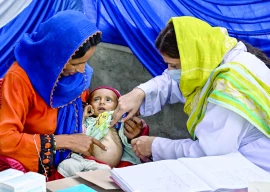
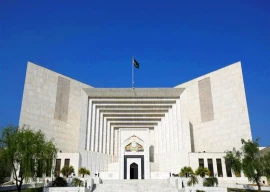


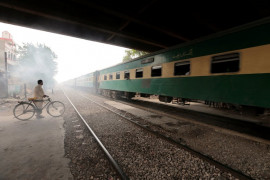

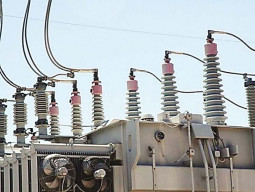
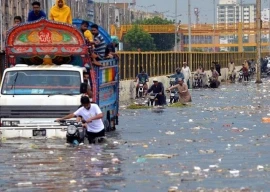
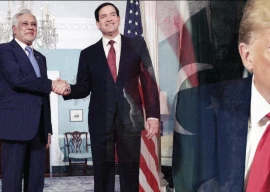





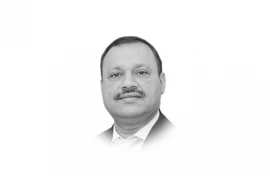

COMMENTS
Comments are moderated and generally will be posted if they are on-topic and not abusive.
For more information, please see our Comments FAQ